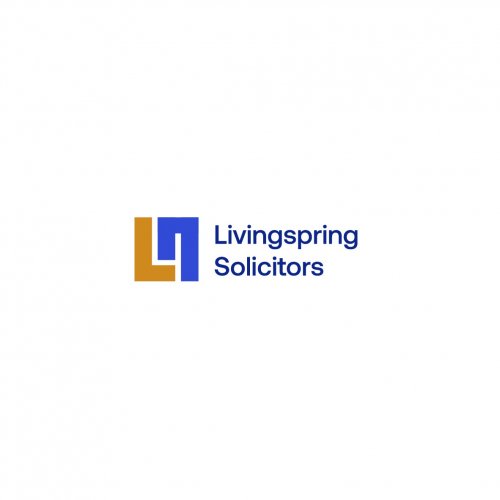Best Tax Increment Financing Lawyers in Calabar
Share your needs with us, get contacted by law firms.
Free. Takes 2 min.
List of the best lawyers in Calabar, Nigeria
About Tax Increment Financing Law in Calabar, Nigeria
Tax Increment Financing (TIF) is a financial tool used by municipalities to stimulate economic development in specific areas, often those that are blighted or underdeveloped. In Calabar, Nigeria, TIF allows the local government to redirect future property tax revenue increases from a defined area towards an economic development project or public improvement. This approach aims to facilitate urban development, infrastructure, and revitalization projects that might not otherwise attract sufficient investment from private developers. TIF is seen as a critical mechanism to improve urban areas, enhance property values, and generate increased economic activity in the region.
Why You May Need a Lawyer
Legal assistance in Tax Increment Financing is crucial for several reasons. Firstly, the complexities of setting up and administering TIF districts require precise legal interpretation and drafting of agreements. A lawyer can help navigate the intricate laws and regulations governing TIFs to ensure compliance. Secondly, engaging in TIF-related projects may involve drafting and negotiating contracts with developers and government bodies, where legal expertise is essential. Additionally, disputes could arise involving stakeholders, such as residents, developers, and government entities, all of which could benefit from professional legal representation. A lawyer experienced in TIF matters can provide invaluable guidance and representation to protect your interests.
Local Laws Overview
In Calabar, Nigeria, TIF is governed by both national and local legislation aimed at promoting development and urban renewal. Key aspects of local laws include the criteria for establishing TIF districts, the approval process for TIF projects, and the management of funds generated through tax increments. The laws specify that TIF districts must demonstrate the potential for increased property values and economic development. Additionally, the statute outlines the obligations of parties involved in TIF arrangements, compliance requirements, and mechanisms for public involvement and transparency in the TIF process.
Frequently Asked Questions
What is Tax Increment Financing?
Tax Increment Financing is a method of financing economic development projects by capturing the future tax benefits of developments within a designated area.
How is a TIF district established in Calabar?
Establishing a TIF district involves meeting criteria set by local laws and requires approval from relevant governmental bodies after demonstrating potential economic benefits.
Who can initiate a TIF project?
TIF projects can be initiated by local government authorities or private developers interested in revitalizing a designated area with approval from the government.
What types of projects can be funded through TIF?
TIF can fund a variety of projects including infrastructure improvements, development of public facilities, and redevelopment of blighted areas.
How are TIF funds generated and used?
TIF funds are generated through the increased tax revenues resulting from rising property values within the TIF district. These funds are then reinvested in projects within that area.
Are there any risks associated with TIF?
Yes, risks include potential overdependence on projected tax increments, changes in property market conditions, and conflicts with stakeholders.
Can TIF affect existing residents in a district?
Yes, TIF can impact residents due to changes in property values, redevelopment activities, and shifts in local infrastructure and services.
How is transparency maintained in TIF processes?
Transparency is maintained through public meetings, disclosure of TIF agreements, and compliance with local regulations requiring community involvement and accountability.
Is legal representation necessary for developers involved in TIF?
Yes, legal representation is highly recommended to navigate the legal complexities, negotiate agreements, and ensure compliance with regulations.
How can disputes related to TIF be resolved?
Disputes can be resolved through mediation, arbitration, or legal litigation, with the guidance of a qualified lawyer to reach amicable solutions.
Additional Resources
Individuals seeking further information or assistance may contact local governmental bodies like the Calabar Urban Development Authority, or consult with professional organizations specializing in urban development and financing. Additionally, informational seminars and workshops organized by local government and private entities can provide insights and guidance on the TIF process.
Next Steps
If you require legal assistance with Tax Increment Financing in Calabar, it is advisable to seek out a lawyer who specializes in urban development law and has experience with TIF projects. Begin by consulting local legal directories or reaching out to law firms with expertise in this area. Prepare to discuss the details of your project or concerns with the lawyer to obtain tailored advice and representation. Ensure that any legal agreements or proposals related to TIF are thoroughly reviewed and understood before proceeding.
Lawzana helps you find the best lawyers and law firms in Calabar through a curated and pre-screened list of qualified legal professionals. Our platform offers rankings and detailed profiles of attorneys and law firms, allowing you to compare based on practice areas, including Tax Increment Financing, experience, and client feedback.
Each profile includes a description of the firm's areas of practice, client reviews, team members and partners, year of establishment, spoken languages, office locations, contact information, social media presence, and any published articles or resources. Most firms on our platform speak English and are experienced in both local and international legal matters.
Get a quote from top-rated law firms in Calabar, Nigeria — quickly, securely, and without unnecessary hassle.
Disclaimer:
The information provided on this page is for general informational purposes only and does not constitute legal advice. While we strive to ensure the accuracy and relevance of the content, legal information may change over time, and interpretations of the law can vary. You should always consult with a qualified legal professional for advice specific to your situation.
We disclaim all liability for actions taken or not taken based on the content of this page. If you believe any information is incorrect or outdated, please contact us, and we will review and update it where appropriate.










